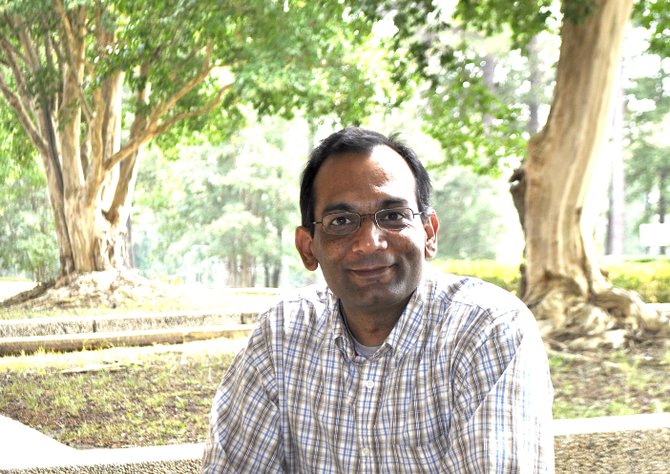The first time this reporter met Mukesh Kumar, he led me through the winding halls of Jackson State University's Urban and Regional Planning Department to his office.
It was late on a Tuesday afternoon, well after 5 p.m., and Kumar was the lone soul left at work. He wore a white dress shirt, a blue blazer and a gold bow tie. He looked, for all intents and purposes, like a college professor.
He had stayed late in his office, which is lined with interesting books and smells as if you just walked into Lemuria Books, to talk with the Jackson Free Press about his idea of what he calls "complete streets." The national initiative is a plan he thinks Jackson can adopt to become more pedestrian-friendly, and won't cost too much money.
Kumar, the interim director of Jackson State's urban and regional planning program, has emerged as one of the most respected authorities on the city of Jackson.
Aside from being a go-to commentator for the Jackson Free Press, Kumar serves as an associate professor at JSU, and lends his voice to a blog on The Clarion-Ledger's Jackson Voices project.
Kumar is naturally skeptical. He has voiced his concerns about projects such as two-waying Capitol Street (he says it won't bring business back), he called for relaxed zoning laws to let citizens address blight on their own, and he tried to explain the correlation between population growth and commercial demand in downtown Jackson.
His ideas are edgy; his criticism fair. The knowledge of cities, and his written commentary, both come naturally to one of JSU's favorite professors.
Born in Bihar, India, the 40-year-old Kumar moved to the United States in 1996 and moved to Iowa to get a master's degree from the University of Northern Iowa. After graduating, Kumar attend Cleveland State University in Ohio, where he earned his doctorate in Urban Public Affairs.
Jackson State lured him to Mississippi to teach in 2004, and he's grown to love the capital city.
"It's a city with great potential," Kumar said. "There are some fundamental obstacles we must overcome, but it has its own personality. I must know the city that I live in, because learning and teaching about cities is what I do."
Kumar stops short of describing his career choice of teaching as a calling, but says he wouldn't do anything else.
"To be a professor, you must be able to profess," he said. "But first, you have to decide what it is you want to profess. For me, it is city and urban planning. It's what gets me excited."
Kumar's parents still reside in Bihar, and he has a younger brother who lives in New Jersey.


